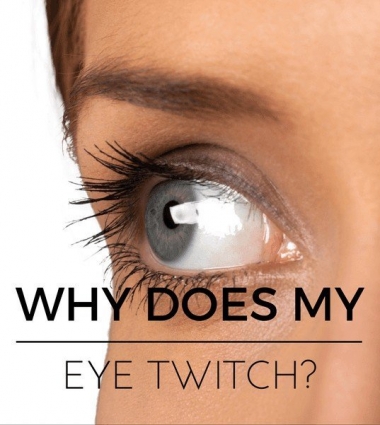Do Your Eyes Twitch? You Are Not Alone.

Do Your Eyes Twitch? You Are Not Alone
Eye twitching or blepharospasm, is the uncontrollable, repetitive blinking of the eyelid – most often the upper lid. Most of us develop a twitch at some point in our lives. The spasm is often short lives, although it can occur over weeks or even months.
The cause of eye twitching is unknown. It is thought to be that the spasm is associated with fatigue, stress and high caffeine consumption.
The Types Of Twitches
There are three main types of eye twitches:-
- Minor Eyelid Twitch. By far the most common spasm associated with the eye, the minor twitch is in almost all instances harmless and painless. While the cause of this spasm is not known, it is often associated with alcohol, tobacco, caffeine, stress or lack of sleep. Irritation of the membranous tissues lining of the eyelids (conjunctivitis) or to the surface of the eye (cornea) can sometimes result in a minor eye twitch.
- Benign essential blepharospasm. The spasms begin in mid to late adulthood and worsens with age. Benign essential blepharospasm usually begins with excessive blinking and can be accompanies by eye irritation. As the disorder increases it can lead to facial spasms, blurred vision and sensitivity to light. In extreme cases the spasm can become so severe that the eyelid remains shut for several hours.
It is thought that benign essential blepharospasm is caused by a mixture of genetic predisposition and environmental factors. Fatigue, stress or irritants (light, pollution, wind etc) are thought to be triggers for the disorder.
- Hemifacial spasm. This is the rarest form of twitching and also the most severe. Usually confident to only one side of the face, hemifacial spasms affect the muscles of both the eyes and the mouth. It is caused most often by an artery pressing against the facial nerves.
When to get help for your twitches.
Most often harmless, there are times however when it is imperative to seek medical help for twitching. If can at times (very rarely( be a symptoms of a neurological disorder such as Bell’s palsy, Dystonia, Parkinson’s disease or Tourette’s syndrome. If you have the following symptoms seek medical attention immediately:-
- Redness, swelling or discharge from an eye
- A drooping eyelid
- Spasms that involve other muscles of the face
- Twitching that completely closes an eyelid
- Twitching that lasts for more than a week
A cure for twitching
In most cases, the spasms will cease after a day or two. Reducing tobacco, alcohol and caffeine intake can speed this up. Using over the counter drops to treat dry eyes can also help by removing the cause of irritation to the eye and consequently the twitching.
For more serious forms of twitching there are treatments. For sufferers of benign essential and hemifacial spasms, botulinum toxins (marketed as Botox) can be used to immobilize the affected muscles. While relief can last for months, the effect will wear off and require re-application.




